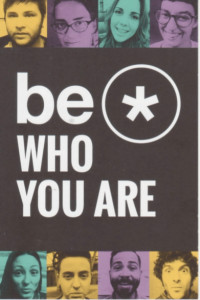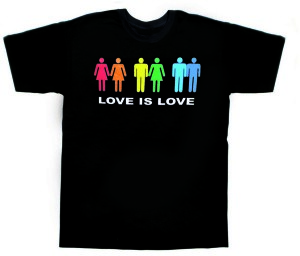Il progetto “Gender Cooperation 1.0” è stato realizzato attraverso uno scambio giovanile internazionale aperto alle persone LGBT e ha offerto ai partecipanti l’opportunità di confrontarsi attraverso uno scambio reciproco di opinioni anche su questioni ancora controverse, come – ad esempio – pari opportunità di adozione per le coppie dello stesso sesso e riflessioni sull’identità di genere, con l’obiettivo di riflettere prima sulla propria identità al di là degli stereotipi e dei vincoli sociali e, di conseguenza, di migliorare la comprensione reciproca e la cooperazione con altre identità di genere attraverso riflessioni sul conflitto e la violenza di genere, spregevole prodotto finale di un processo che – come è stato sottolineato – è in primo luogo di non-dialogo e non-cooperazione reciproca.
Il lavoro sui conflitti interpersonali che ha fatto parte di questa proposta di progetto è stato ispirato dal desiderio di sottolineare la possibilità di reciproco arricchimento che il dialogo può portare a ogni individuo in quanto tale. I/Le partecipanti hanno anche aumentato il loro grado di conoscenza delle questioni di genere al fine di sostenere il loro impegno nelle ONG di origine e sono state/i in grado – grazie a ciò che hanno appreso durante lo scambio – di chiarire le loro competenze e le loro azioni, tenendo conto delle migliori pratiche apprese dagli/dalle altri/e partecipanti e dalle organizzazioni di invio. Questo maggiore impegno ha influenzato il principale target di attività delle associazioni (giovani, 16-30 anni) al fine di avviare anche pratiche di istruzione tra pari e sostenere le azioni già in atto nei rispettivi Paesi d’origine.
Le organizzazioni partner hanno beneficiato dei risultati dello scambio col veder aumentata la loro conoscenza delle rispettive buone pratiche in atto e quindi nel migliorare il proprio approccio alle questioni di genere nei rispettivi territori. Infine, il progetto ha avuto un impatto significativo a livello locale, sostenendo le organizzazioni partner – in particolare quelle provenienti dalla Bosnia-Erzegovina e dalla Georgia, dove si sono verificati negli ultimi anni dispute violente anche nei confronti delle persone e degli eventi organizzati da persone LGBT – al fine di meglio promuovere la tolleranza e la comprensione degli aspetti della costruzione sociale del genere.
The project “Gender Cooperation 1.0”, implemented through an international youth exchange open to LGBT persons, as well, aimed to provide the participants with an opportunity to compare mutual exchange of views (even on issues still in dispute, such as – for example – equal opportunities of adoption for same-sex couples ) and reflections on gender identity, with the aim to reflect first on our own identity beyond stereotypes and constraints and, consequently, to increase understanding and mutual cooperation with other gender identities through reflections on gender conflicts and gender-based violence, despicable end product of a process that – as was emphasized – is first and foremost of non-dialogue and non-mutual cooperation.
The work on interpersonal conflict, which is part of this project proposal, was inspired by the desire to emphasize the potential for mutual enrichment that dialogue can lead to each individual as such. The participants also increased their degree of knowledge of gender issues in order to support their own commitment in the NGOs of origin and they were able – thanks to what learned during the exchange – to clarify their skills and their actions taking into account best practices learned from other participants and organizations, as well. This increased commitment influenced the main target group of the activities of the associations (young people, 16-30 years old) in order to initiate also practices of peer-education and support those actions already in place in the respective home countries.
Partner organizations benefited from the results of the exchange seeing increased their knowledge of best practices and thus improving their own approach to gender issues in their respective territories. Finally, the project had a significant impact at the local level, supporting partner organizations – particularly those from Bosnia-Herzegovina and Georgia, which have occurred in recent years over violent disputes also directed against persons and events organized by LGBT persons – in order to better promote tolerance and understanding of the aspects of the social construction of gender.


A questo link puoi vedere il video dello scambio / Follow this link to watch the youth exchange video
Leave a Comment
Last Updated: 19 Marzo 2016 by admin
Gender Cooperation 1.0 – Torino (Italia / Italy) 2015
Il progetto “Gender Cooperation 1.0” è stato realizzato attraverso uno scambio giovanile internazionale aperto alle persone LGBT e ha offerto ai partecipanti l’opportunità di confrontarsi attraverso uno scambio reciproco di opinioni anche su questioni ancora controverse, come – ad esempio – pari opportunità di adozione per le coppie dello stesso sesso e riflessioni sull’identità di genere, con l’obiettivo di riflettere prima sulla propria identità al di là degli stereotipi e dei vincoli sociali e, di conseguenza, di migliorare la comprensione reciproca e la cooperazione con altre identità di genere attraverso riflessioni sul conflitto e la violenza di genere, spregevole prodotto finale di un processo che – come è stato sottolineato – è in primo luogo di non-dialogo e non-cooperazione reciproca.
Il lavoro sui conflitti interpersonali che ha fatto parte di questa proposta di progetto è stato ispirato dal desiderio di sottolineare la possibilità di reciproco arricchimento che il dialogo può portare a ogni individuo in quanto tale. I/Le partecipanti hanno anche aumentato il loro grado di conoscenza delle questioni di genere al fine di sostenere il loro impegno nelle ONG di origine e sono state/i in grado – grazie a ciò che hanno appreso durante lo scambio – di chiarire le loro competenze e le loro azioni, tenendo conto delle migliori pratiche apprese dagli/dalle altri/e partecipanti e dalle organizzazioni di invio. Questo maggiore impegno ha influenzato il principale target di attività delle associazioni (giovani, 16-30 anni) al fine di avviare anche pratiche di istruzione tra pari e sostenere le azioni già in atto nei rispettivi Paesi d’origine.
Le organizzazioni partner hanno beneficiato dei risultati dello scambio col veder aumentata la loro conoscenza delle rispettive buone pratiche in atto e quindi nel migliorare il proprio approccio alle questioni di genere nei rispettivi territori. Infine, il progetto ha avuto un impatto significativo a livello locale, sostenendo le organizzazioni partner – in particolare quelle provenienti dalla Bosnia-Erzegovina e dalla Georgia, dove si sono verificati negli ultimi anni dispute violente anche nei confronti delle persone e degli eventi organizzati da persone LGBT – al fine di meglio promuovere la tolleranza e la comprensione degli aspetti della costruzione sociale del genere.
The project “Gender Cooperation 1.0”, implemented through an international youth exchange open to LGBT persons, as well, aimed to provide the participants with an opportunity to compare mutual exchange of views (even on issues still in dispute, such as – for example – equal opportunities of adoption for same-sex couples ) and reflections on gender identity, with the aim to reflect first on our own identity beyond stereotypes and constraints and, consequently, to increase understanding and mutual cooperation with other gender identities through reflections on gender conflicts and gender-based violence, despicable end product of a process that – as was emphasized – is first and foremost of non-dialogue and non-mutual cooperation.
The work on interpersonal conflict, which is part of this project proposal, was inspired by the desire to emphasize the potential for mutual enrichment that dialogue can lead to each individual as such. The participants also increased their degree of knowledge of gender issues in order to support their own commitment in the NGOs of origin and they were able – thanks to what learned during the exchange – to clarify their skills and their actions taking into account best practices learned from other participants and organizations, as well. This increased commitment influenced the main target group of the activities of the associations (young people, 16-30 years old) in order to initiate also practices of peer-education and support those actions already in place in the respective home countries.
Partner organizations benefited from the results of the exchange seeing increased their knowledge of best practices and thus improving their own approach to gender issues in their respective territories. Finally, the project had a significant impact at the local level, supporting partner organizations – particularly those from Bosnia-Herzegovina and Georgia, which have occurred in recent years over violent disputes also directed against persons and events organized by LGBT persons – in order to better promote tolerance and understanding of the aspects of the social construction of gender.
A questo link puoi vedere il video dello scambio / Follow this link to watch the youth exchange video
Category: Scambi internazionali
Cerca / Search
Articoli recenti / Recently published
Commenti recenti / Recently commented
Meta